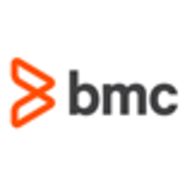

Pega Platform and Control-M are leading solutions in business process management and workload automation, respectively. Control-M seems to have the upper hand in task automation and workflow management, while Pega is noted for its flexibility and integration capabilities.
Features: Pega Platform is known for its adaptability and rapid prototyping, alongside a unified architecture that supports cloud technologies. Control-M shines in automating a wide range of tasks such as scheduling, file transfers, and providing robust cross-platform support.
Room for Improvement: Pega Platform could improve its user interface, cloud presence, and RPA integration, while simplifying its licensing model. Control-M users see room for enhancement in reporting, integration ease, and reducing high licensing costs.
Ease of Deployment and Customer Service: Pega Platform is praised for its fast deployment across diverse environments, although customer service feedback varies. Control-M offers versatile deployment options but at a significant cost, with positive technical support feedback but some desire for quicker response times.
Pricing and ROI: Pega Platform is perceived as expensive but offers high ROI for large enterprises with a flexible licensing model. Control-M also carries a high price, yet it is considered valuable for extensive features and ROI in larger environments.
The main return on investment with Helix Control-M has been a reduction in downtime and minimization of manual interventions, which has improved our operational efficiency.
You can run a million batch jobs or tasks at night when all of your highly skilled people are at home sleeping.
By implementing automation tools, you can minimize human errors and improve efficiency.
They quickly evolve with changing technology trends, easily adopt new features, and incorporate them into the product.
The support is accurate, and BMC is always ready to help with queries and complex incidents.
The technical support is very polite, helpful, and available 24/7.
I never needed support from the platform standpoint, but if additional features are required, we have regular meetings with the product team for feedback.
The technical support from Pega is very low, rating a one or two out of ten.
Pega's technical support team is very helpful.
Our license doesn't limit our ability to configure Control-M as needed, allowing us to easily create new agents or environments.
It can absorb more workload wherever needed.
As the workload on Control-M increases, its scalability is much higher.
Currently, big banking providers and insurance providers, even the members for healthcare payers, are using more than millions of operations on a daily or weekly basis.
The downtime is higher compared to AWS.
The testing and development phases need to be more rigorous before releasing patches.
Once properly implemented, the system becomes very stable, which is one of its strongest attributes.
They could provide more documentation and tutorials to make the initial setup easier to understand.
We've experienced main problems with MFTE where having one setup means when an error occurs, the entire service goes down.
Documentation should be maintained for all versions since they provided the application.
Pega introduced Constellation, which allows a user to build a more engaging visual experience.
For customer interactions, while the Pega Platform's AI-based decisioning and predictive analytics are great, the Process AI is not very popular yet, as it works on process data rather than customer data.
My learning curve in robotics has been challenging.
The licensing cost is very high, and they often consider switching to IBM Workload Scheduler or other options.
Control-M tends to be more expensive compared to other solutions, but users get great value from it.
Control-M is among the highest-priced solutions in the market.
Pega is priced higher than open-source options like Flowable but is suitable for large-scale industries like banking and insurance.
The pricing is expensive, and this is an issue.
From a licensing perspective, it is higher than the competition.
Automation is more advanced, deployment is fast, and version control has been simplified.
The user interface is comprehensive and lets me view all my jobs on one page, monitor everything, and access the job history.
It is easy to integrate Control-M with technologies for data ops or DevOps processes as things change, and it is not complex compared to other workload automation tools available in the market.
Management capabilities such as dashboards.
Pega Platform is excellent for enterprise-level solutions with integrations to entire systems, including case management, service orchestration, CRM, decision-making capabilities, digital process automation, and AI-driven functionalities.
| Product | Market Share (%) |
|---|---|
| Control-M | 4.7% |
| Pega Platform | 6.3% |
| Other | 89.0% |


| Company Size | Count |
|---|---|
| Small Business | 26 |
| Midsize Enterprise | 13 |
| Large Enterprise | 114 |
| Company Size | Count |
|---|---|
| Small Business | 9 |
| Midsize Enterprise | 15 |
| Large Enterprise | 68 |
Control-M by BMC is engineered to manage hybrid cloud workflows, offering orchestration capabilities starting at $29,000 annually. Aimed at helping growing teams, it efficiently supports cross-environment scheduling and automation needs.
Control-M offers robust cross-platform scheduling, automation, and integration with applications such as SAP and Informatica. Users appreciate its ease of use with a graphical interface, centralized management, and monitoring capabilities. Advanced features, including Managed File Transfer, automated error handling, and real-time alerts, enhance productivity. The ability to unify workflows and support diverse environments makes Control-M a trusted tool in many sectors. While improvements in reporting flexibility and API integration with tools like ServiceNow are needed, addressing performance issues during upgrades could enhance its value. Offering improved support for new technologies and cloud environments is beneficial, with cost-effectiveness being a consideration.
What are the key features of Control-M?Control-M is leveraged in industries like finance for enterprise scheduling and data management, supporting mainframe, Linux, Unix, Windows, and cloud platforms. It contributes to workflow orchestration and workload automation, improving operational efficiency and enhancing IT infrastructure across those environments.
Pega Platform provides flexible business process management with a focus on rapid application development and automation through a low-code approach, enhancing efficiency across sectors.
Pega Platform is renowned for its ability to streamline operations with robust automation features, including robotic process automation and decision-making capabilities. Its intuitive interface and workflow management contribute to a reputation for enhancing business processes. Although users face challenges with integration limitations and high licensing costs, they benefit from rapid deployment and efficient process adaptations. The unified architecture reduces complexity, while case management and integration services support digital transformations in sectors such as banking, insurance, and healthcare.
What are the key features of Pega Platform?In industries like insurance, banking, healthcare, and government, Pega Platform is implemented to automate diverse workflows, supporting initiatives from claims processing to customer onboarding. Enterprises use Pega for case management and digital transformations, valuing its out-of-the-box integrations and real-time reporting capabilities to boost operational automation and enhance customer experiences.
We monitor all Process Automation reviews to prevent fraudulent reviews and keep review quality high. We do not post reviews by company employees or direct competitors. We validate each review for authenticity via cross-reference with LinkedIn, and personal follow-up with the reviewer when necessary.